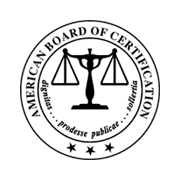
506 N. Armenia Ave. Tampa FL 33609 | 813-870-3100
Massachusettes Federal appellate court determines that funds debtor held from an uncashed 401k loan check is property bankruptcy trustee can take and use to pay creditors:
In reversing a bankruptcy court decision, the federal appellate court in Boston found that a $18,000 uncashed check for a loan from the Debtor's 401k was property the trustee in a chapter 7 case could take and use to pay creditors. Ostrander v. Brown (In re Brown), 2020 Bankr. LEXIS 1340, BAP No MS 19-024 (21 May 2020). Debtor had borrowed the $18,000 from her 401k in July 2018, and had not cashed the check as of the date she filed chapter 7 bankruptcy on 6 August 2018. At the meeting of creditors in September 2018 the debtor acknowledged the loan and check, and that the monthly deductions on her paycheck were repayment for such loan. The debtor did not separately schedule the check in her schedules or separately claim the check as exempt from the trustee; asserting through the case that the exemption in the 401k encompassed the funds represented by the check.
On 27 February 2019 the trustee filed a motion with the court to require the debtor to turn the check over to him, asserting that the check was 'non-exempt' property of the estate. The debtor objected, asserting that the check was still part of the 401k plan. The trustee asserted that the funds could not be excluded from the property required to be turned over to the trustee as would normally be the case with 401k funds, as they had been distributed to the debtor, and were within her possession and control when the case was filed. The bankruptcy court denied the motion, finding that the funds remained in an account of a third party until the check was cashed, and that such account was exempt. The trustee appealed.
The appellate court first examined the turnover statute: §542(a). This statute requires turnover of property the trustee may sell if
1) the property is in the possession, custody, or control of a noncustodial third party;
2) that it is property of the estate; and
3) that it is property of the type the trustee could sell or lease or that the debtor could exempt; and
4) that the property is not of inconsequential value to the estate. The only issue contested is whether the check is property of the estate.
The appellate court found that under §541(a) and §542 every conceivable interest of the debtor is within the reach of §541(a) but noted §541(b) can exclude property subject to a restriction on the transfer of a beneficial interest in a trust that is enforceable under nonbankruptcy law. Thus the BAP found that the check having been distributed from the 401k was now property of the estate.
The BAP then looked to whether the funds were exempt, ie property the debtor can keep after filing the bankruptcy. Initially the court noted that the debtor never raised the argument that the trustee failed to timely object to the exemption. Even if such argument had been raised, the BAP found that the trustee's motion for turnover was in effect an objection to exemptions since it mentioned the trustee's position that the funds were not exempt, and gave notice that he was objecting to the exemption. Also, the debtor never separately scheduled the check as an asset or as exempt.
Finally the BAP found that an exemption under the statute the debtor was asserting must satisfy two requirements:
1) the amount sought to be exempted must be retirement funds, and
2) those funds must be in an account that is exempt from taxation under the relevant provisions of the tax code.
A number of cases have held that funds withdrawn from a retirement account lose their exempt character if not placed in another account exempt from taxation under the tax code. The BAP found that the funds were distributed on 12 July 2018 (the decision is not clear but presumably that is the date the check was issued) and that as of the date of the filing of the bankruptcy the check was in the possession or control of the debtor. The funds were not rolled over into another tax exempt fund within 60 days of the distribution to her, thus as of the date the case was filed the funds were no longer "in" one of the tax exempt funds. The case appears to imply the result may have been different if the debtor had rolled them over into a tax exempt funds, even after the filing, if such rollover was within 60 days of the date of distribution to debtor.
The court rejected the debtor's argument that funds distributed from a 401k via check remain in the account until the check is cashed.
Michael Barnett, Esq.
Michael Barnett, PA
506 N Armenia Ave.
Tampa, FL 33609-1703
813-879-3100
Over 25 Years in Florida

Michael Barnett has provided his services in and around Tampa, Florida covering Hillsborough, Pasco and Polk County for over 20 years.
Board Certified

Mr. Barnett is board certified by the American Board of Certification in consumer bankruptcy law, and has been board certified since January 1993.
BBB Accredited

The BBB has determined that this business meets accreditation standards.